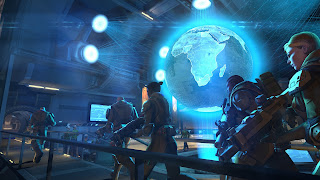To all those listening to this entry when it comes out, Happy New Year! As we ring in 2022, many of us will follow the time-honored tradition of setting a New Year’s Resolution to begin streaming. And within that group of streaming hopefuls, a large percentage will follow the other time-honored New Year’s tradition, of never following through with their goal. As I mentioned in the entry How to Stick to Your Streaming Plans, 92% of Americans fail to keep their resolutions for a full year, and 80% will give up within the first month. Now I know it sounds like I'm being a total downer here, but trust me, it's for a good cause. Because if the start of a new year doesn’t work for kickstarting a new project, this begs the question: when is the best day to start streaming?
The answer is, there’s nothing wrong with having your venture coincide with a new year. (The first episode of this podcast, for example, happened to be released in the first week of January three years back!) The problem instead lies in the way most people build up their expectations for New Year’s Resolutions: all talk and no action. Most of us revel in telling others about our objectives for the upcoming twelve months, and as I’ve explored in Twitch Playbook entries before, I think it’s the gratification we get from sharing our incomplete plans that causes them to end up fizzling out. So whether you’re here on the cusp of a new year or in the middle of June, rest assured: today is the best day to start streaming. Don’t make a big deal about it to others. Don’t overthink it. Just start.
If you’ve been following The Twitch Playbook to this point, you know this topic is really important to me. I’ve covered it from several angles in various entries like Start Your Twitch Channel with No Money, How to Find the Time to Stream on Twitch and Don’t Wait to Start Your Streaming Dream. And the concept of ‘starting’ doesn’t only apply to absolute beginners either. Many experienced streamers want to make changes, but feel nervous about rocking the boat. Streaming is a constantly shifting journey, in which we often find new priorities, come up with different ideas, and explore new pathways. So whether your channel has yet to be created, or you’ve been broadcasting for years, in this Growth Check-In entry we’ll explore some of my favorite methods to get yourself out of your head and onto the air.
➢ PUT IN THE TIME
Plenty of games get improved after release,
but we appreciate getting to play them early.
Perfection is one of the biggest reasons why people never begin their projects. They want to wait until they have everything exactly where they want it, and figure that until that time there’s no need to make a move. Of course, things never work out exactly the way we want them to, and that causes most people to wait so long that they never start at all. In the entry When in Doubt, Stream, I spoke about how you should avoid this mindset when streaming on Twitch. Do not let such a misguided pursuit as 'perfection' stop you from putting in actual hours live on the air. Improving your ability to stream is more important than improving the means by which you stream. And if you think about it that way, it doesn’t matter whether you own a capture card or you stream from a smartphone pointed at the TV screen. Both work just as well to log hours of experience.
In the entry Stream Before You’re Ready, I told a story about how The Beatles were writing songs and performing live before they even learned all the chords on their guitars. And on top of that, once they became worldwide sensations, they still never learned to read or write musical notation. There are countless stories like this, of successful figures who began their projects in this same way. They didn’t wait until they had gathered all the tools and knowledge of their field, but followed their passions and allowed themselves to learn as they went. The only important thing when following your dream is that you care deeply about it. And streaming, of course, is no different. You don’t need to listen to every episode of this podcast, or buy all the equipment you consider to be the ‘bare minimum.’ Just go live with whatever you already own, embrace your ignorance, and accumulate real-world broadcasting experience. There’s nothing you can learn on a page, in a podcast or by watching a video that will teach you more than you can glean by simply going live for days and weeks on end.
➢ MAKE GOOD DECISIONS
Choices are also ironically a big problem for many of us. It may seem to be convenient to have so much independence and so many options, but this same freedom often causes us to seize up and do nothing. In the entry How to Avoid Streamer’s Block, I talked about limiting your choices. If you can become more decisive, you’ll put out more streams. And if you do more streams, you’ll improve more quickly. Of course, I know what you’re thinking: how do you be more decisive while still making the right choices? The answer is, any choice is better than no choice. If your two options are to either make a less-than-perfect stream today, or not do a show until tomorrow, embrace imperfection and go live now! Sometimes it’s best to take away your ability to choose, in order to grow.
So if you’ve been streaming for a while and can’t decide on the best way to approach your newest channel feature, just go for it. Let it be imperfect now, and improve it over time. If you’ve been wanting to start streaming and can’t find the right time to pull the trigger, there’s no time like the present. Today is the best day to start streaming. No matter what day it is while you’re listening to this episode. Don’t think. Just stream. You’ll thank yourself for it later.




















